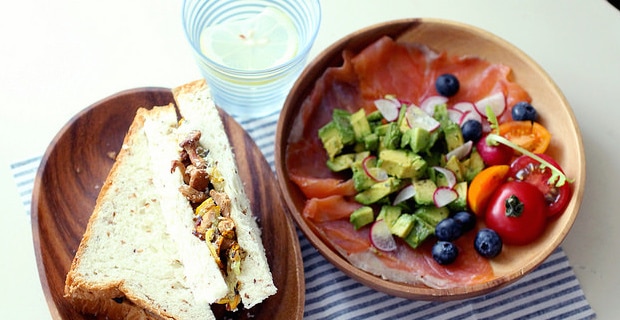
Are you eating a whole foods diet? If you are not, I challenge you today to start slowly transitioning into one. This way of eating will significantly change your lifestyle by keeping your immune system healthy, helping manage your stress levels, and promoting a longer life.
So what exactly is the meaning of a "Real Whole Food Diet"? Whole Foods are foods that are in their natural state. They haven’t been altered, they are unprocessed, GMO-free, and are unrefined. Examples of whole foods are fresh fruits and vegetables, antibiotic- and hormone-free dairy, cage free eggs, whole grains, and also local grass fed meats. These foods are nutrient dense and provide your body with what it needs to be disease free and at its healthiest state. By eating a whole food diet you are keeping your organs, cells, and lymphatic system clean. You are also helping your system rid itself of unhealthy toxins that have built up through the years.
Eating a whole food diet doesn’t have to be a difficult transition either, especially when you make small steps to get there. Here are just a few easy ways to start you on your way to eating a “Real Whole Food” diet. Remember to start slow.
Read more about 'big impact' nutrition tips
1. Start shopping at your local farmer’s market
Did you know that when you buy produce at the farmer’s market it was actually picked the day before? When I first started going to the market I would ask the farmers lots of questions about whether they used pesticides or when was the produce picked. I was thrilled to find out just how fresh and un-touched the produce was. They barely used any sprays to keep the bugs away, and they wait until the last minute to pick the produce from the ground. It’s almost literally from the ground to your plate, which means you are eating the freshest foods, and in the most possible natural state. Another great benefit is that the produce is typically very reasonably priced.
2. Avoid eating anything from a box, can, bottle, or bag
Any food that is from a box, can, bottle, or bag is always processed in some way. That is why it can stay in your cabinet for so long without going bad. It may be a quick and easy way to eat when you are on the run or in a hurry, but it is by no means eating a clean whole food diet. Most of these products are loaded with chemicals that clog up your system, slow it down, and eventually will cause many problems in your body.
3. Avoid white food
This includes white bread, white flour, white sugar, and white pasta (but not cauliflower!). A whole food alternative would be whole grain pasta, whole grain bread, and a natural whole food sweetener.
4. Turn in your white sugar, Splenda, and Sweet & Low.
Instead of using refined sugars, artificial sweeteners, or corn syrup, a whole food alternative would be honey, molasses, or pure maple syrup. These sweeteners will add nutrients that will benefit your body instead of adding toxins that will clog it.
Read more about how artificial sweeteners screw up your body
5. Make it simple
Don’t make it complicated. Simply be a food detective; read labels and know where your food is coming from. This includes your meat too. Nature gives us all the food resources needed for our bodies to thrive. When in your grocery store, shop the perimeter to find all your whole food needs and remember to plan your meals. Eating a clean whole food diet will add years to your life, and your body will thank you for it.
Image: with wind




